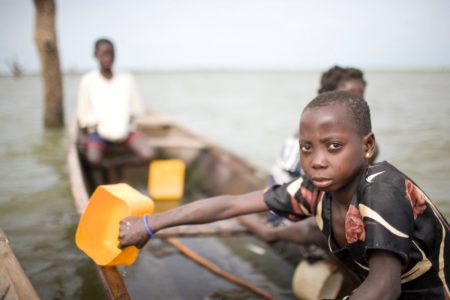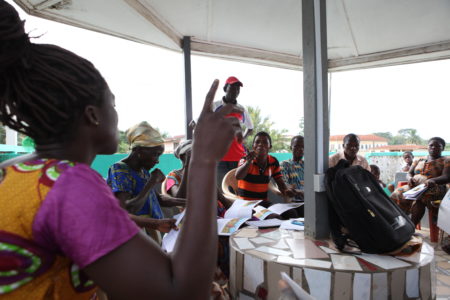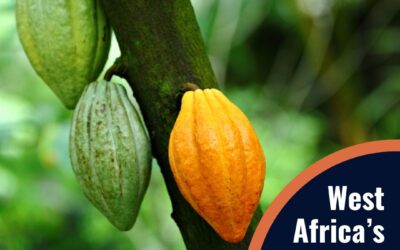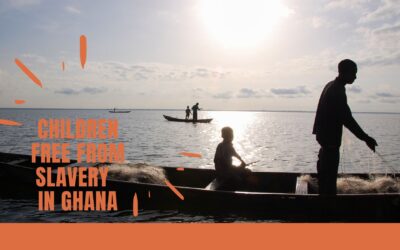For the first six years of his life, David enjoyed a happy and supportive upbringing in a village in Ghana. But then, his father fell ill and died – and David’s life was upended. Unable to support seven children, David’s mother sent him to labor on dangerous fishing boats on Lake Volta.
“I did not agree to go, but I had no choice than to go with the man,” David recalls. Life on the lake was brutal. “Sometimes they beat me with rope and sticks,” he says. The abuse lasted four years.
Then, horribly, things got even worse. David was returned to his home temporarily, only to learn that his mother had died. He was sent back to the lake, this time to work on fishing boats for his grandfather.
“I was hoping that he will treat me better than my previous master and at least enroll me in school,” David said. “But my experience on the lake with my grandfather was even worse than my former master. He denied me of my basic needs and hailed all kinds of insults on me that made me felt that I was good for nothing. I even had to work extra hard with other fishermen to care for my basic needs.” David’s grandfather told the boy he was working to pay off the costs of his mother’s funeral. He recalls feeling bitter and worthless.

Lake Volta child fishing slavery | Photo: FTS/Romano
Child slaves on Lake Votla toil in excepitonally dangerous conditions. Often alone on leaky boats, they work from dawn to dusk. Many children are order to untangle fishing nets from submerged trees — and never resurface. The children are malnourished, receive no schooling, and are severely punished for making simple mistakes.
It Takes a Village
David was rescued thanks to the community education and mobilization work of Free the Slaves and our front-line partner organizations International Needs Ghana and the Don Bosco Child Protection Center. The Growing Up Free Program uses the Free the Slaves community-based model to foster respect for child rights. It was community pressure that persuaded David’s grandfather to get him off the lake and into school.

Child rights training in Ghana | Photo: FTS/Timpy
“Today I can read and express myself in simple English,” David says. “I have tasted the goodness of what education can do for a person’s life.” David aspires to be an electrical engineer and soccer player. “I am determined to defy all odds to become all that God intends me to be. I am convinced that my light will shine.”
Now 17 and free, David is no longer bitter.
“Without forgiveness, I have no peace in my soul and I will be disconnected with God,” David says. “Therefore, I have forgiven all those who have hurt me deeply and pray for them to change.”
Learn more about our Growing UP Free program on our Ghana webpage. See more inspiring stories of of freedom on our Survivor Stories webpage.


